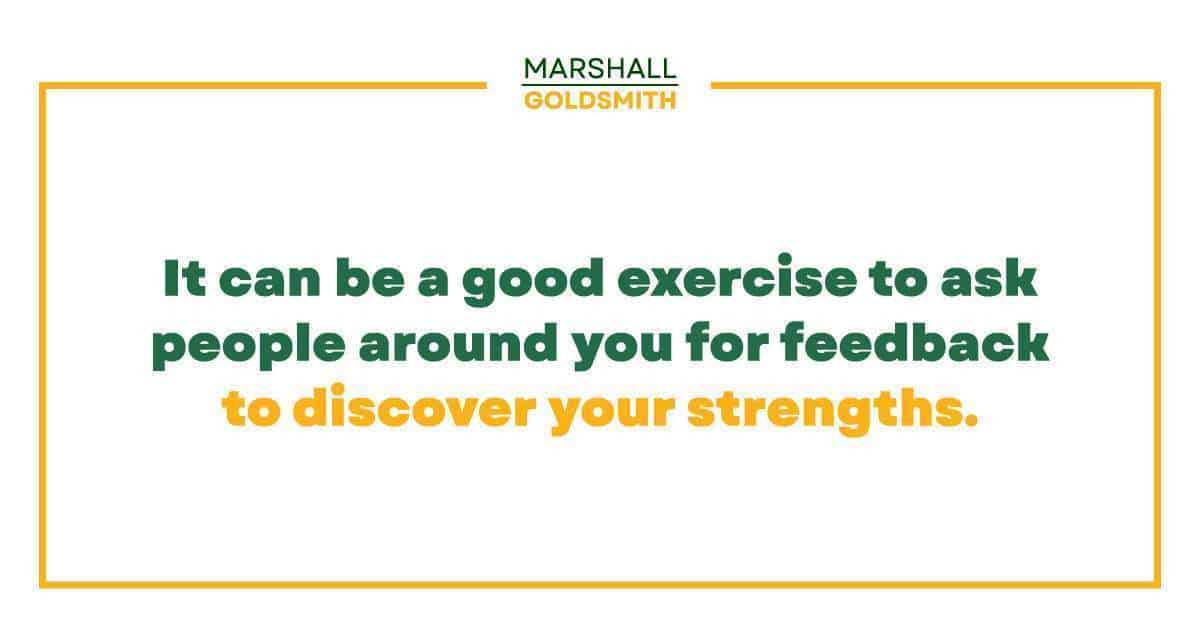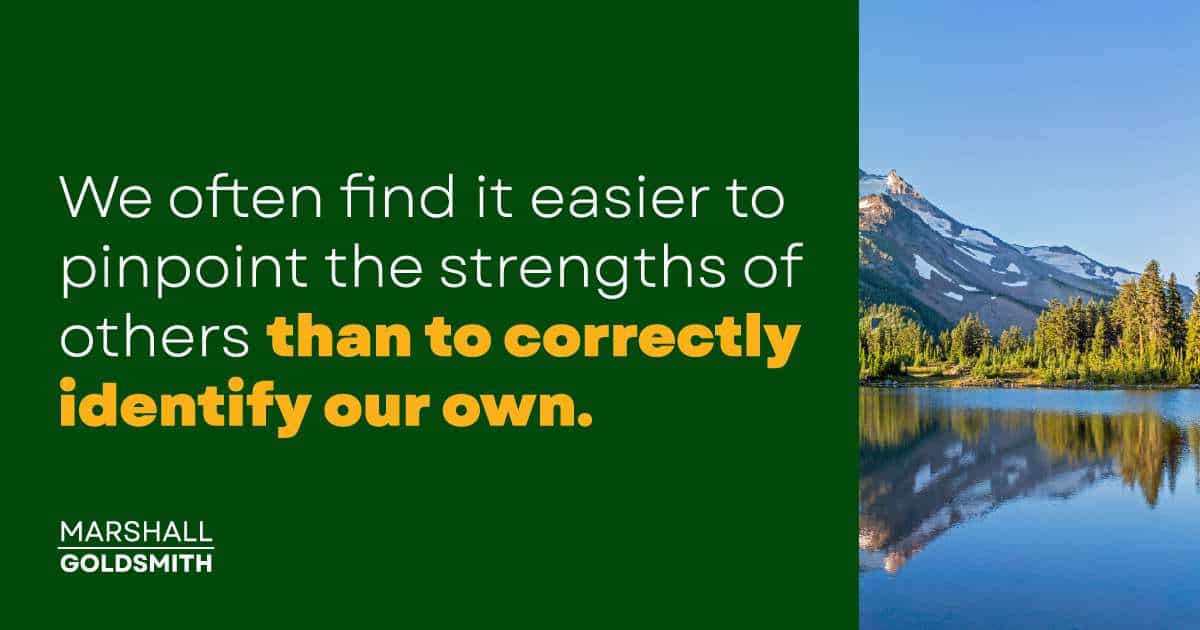Playing Favorites By Marshall Goldsmith There’s a reason I devote...
The One-Trick Genius Roundtable
We often find it easier to pinpoint the strengths of others than to correctly identify our own. When we look deeply into ourselves, not searching for faults but for certain qualities, our work can be more difficult, because sometimes we’re unwilling to accept our strengths. Sometimes we can also misidentify what makes us good in an area — patience might be mistaken for lassitude, or eagerness might be interpreted as impulsiveness.
That’s why it can be a good exercise to ask people around you — people who are aware of your strengths and weaknesses, some of which you may not yourself be aware of — and ask them for feedback. You’ll be doing the same for them in this provocative yet revealing — and enjoyable — exercise.
DO THIS: Gather six people in your living room who know one another well.
Starting with yourself, identify the one skill that you believe is your special talent, that hidden or self-evident one-trick genius quality you have that makes you most effective.
Each of the other five people must then respond and tell you whether they agree with you or not. No one gets a pass. If they disagree with you — that is, if they disagree with your assessment of your special talent or one-trick genius quality — then they must offer an alternative opinion.

You repeat this with each member of the group.
Feel free to debate any comments. Cynicism and meanness are forbidden, as are anger and hostility at anyone for being honest. The point is to reveal what you think of yourself, what others think of you — and to come up with an astute assessment.
People in this group will express thirty-six opinions of agreement or disagreement — but no one is allowed to disagree with what the other person says.
There will be flattery and pain and surprise. But this is not an exercise in self-congratulation or self-flagellation. Like the exercise of “You Can Be More” or YCBM, it’s about self-awareness and helping one another.
The first time I tried this, I confidently asserted that my unique talent was understanding other people’s motivations before they did.
I’ve believed this about myself since my twenties, after three years of leading intense encounter groups at UCLA (a midcentury phenomenon in which participants were encouraged to express feelings, often in confrontational encounters).
None of the people disagreed that I had this talent, but it didn’t make me unique. Several people also felt they were excellent at spotting others’ motivation. The most accurate observation, from a woman I’ve been coaching for a dozen years, was more mundane. My gift, she said, was not getting bored by repetitive activity, such as delivering my message more than one hundred times a year with the same level of enthusiasm.
“Lots of people understand motivation,” she said. “Not many can stay on message.”
Until she said it, I’d never regarded that ability as anything special. My only response was “Thank you.”
What will your revelation be when you do this exercise?

Adding Too Much Value Won’t Get You There By Marshall...
C-Suite Master Class: No, But, However By Marshall Goldsmith Continuing...
The Doerr Institute: Expanding the Market for Coaches By Marshall...
Making Leadership Development Part of the College Degree at Rice...
Sanyin Siang – Winner of the Thinkers50 Marshall Goldsmith Coaching...
Thinkers50 Marshall Goldsmith Distinguished Achievement Award in Coaching – Nominees...
Leading with Influence: What Is Influence360°? By Marshall Goldsmith Founder...
Are You a Dominator, Manipulator, Persuader or Influencer? By Marshall...
Leading with Influence: Redefining Modern Influence Part 2 By Marshall...
My mission is simple. I want to help successful people achieve positive, lasting change and behavior; for themselves, their people, and their teams. I want to help you make your life a little better. With four decades of experience helping top CEOs and executives overcome limiting beliefs and behaviors to achieve greater success, I don’t do this for fame and accolades. I do this because I love helping people!
As an executive educator and coach, I help people understand how our beliefs and the environments we operate in can trigger negative behaviors. Through simple and practical advice, I help people achieve and sustain positive behavioral change.